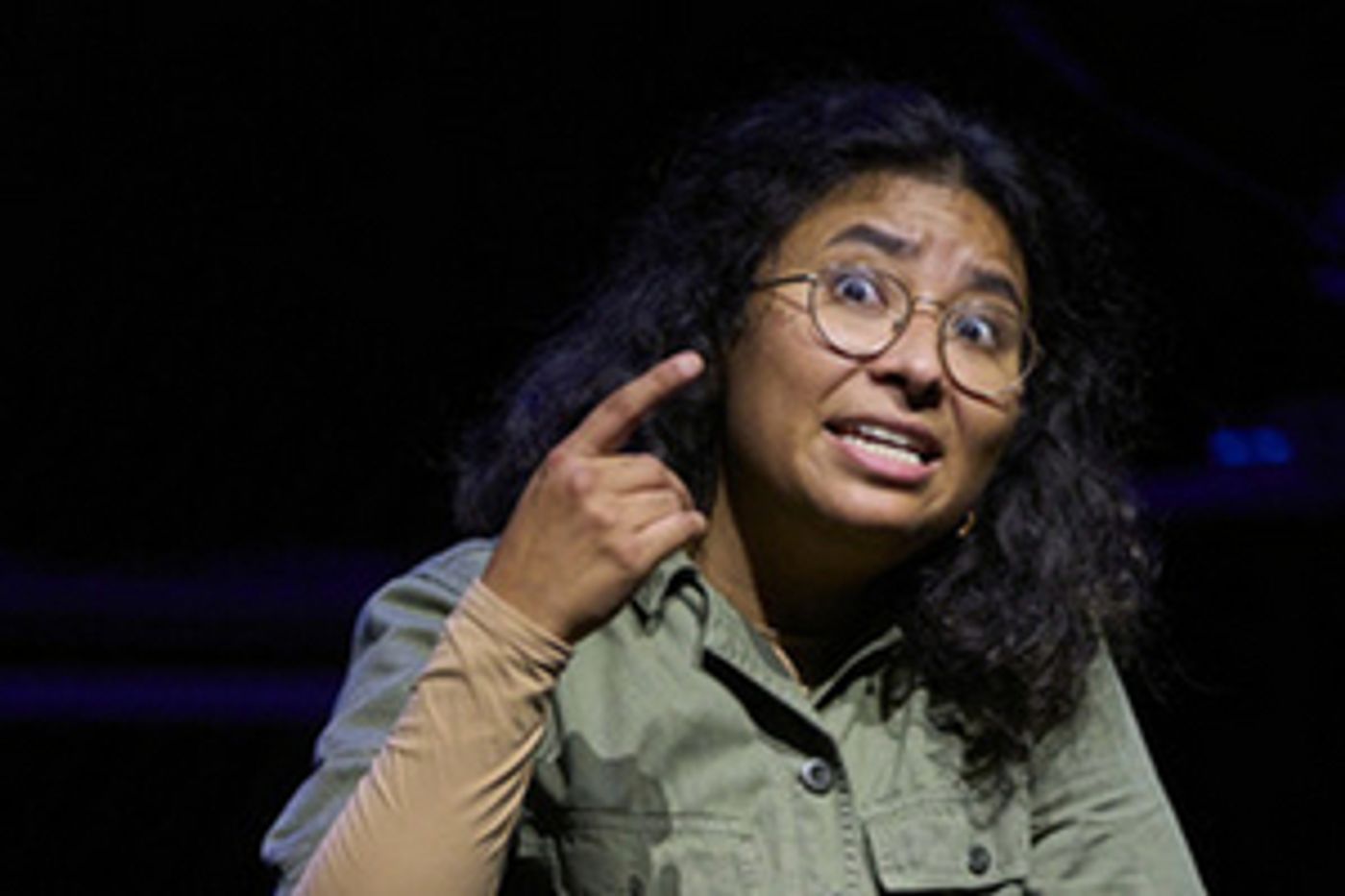Review: WHERE DID WE SIT ON THE BUS? at Cleveland Play House
Cleveland Play House exposes what it's like to be Latin-American

For the last several years more and more attention has been placed on The Black Lives Matter and Me-Too movements, woke language, microaggression, radical feminism, transgenderism, Critical Race Theory and aggression against Asians. They have become issues for laws, politics, education, media and the arts.
After almost two-years of non-live production, the Tony winning Cleveland Play House opened its 106th season with Brian Quijada's solo show, WHERE DID WE SIT ON THE BUS?"
During a third-grade lesson on the Civil Rights movement and Rosa Parks, a Latina child raises her hand to ask, "Where did we sit on the bus?" Her teacher can't answer the question.
"This autobiographical solo show follows that kid from her childhood to adulthood as she explores her family's history, her identity as a first-generation American, and what the world will be like for her future children. Featuring live music that brings together Latin beats, hip-hop, and looping, WHERE DID WE SIT ON THE BUS? examines what it means to be Latinx [and a lesbian] in America."
Brian Quijada, the play's author, explains that he felt alone growing up as a first-generation Salvadorian-American in a basically all white Chicago suburb, where his friends were almost all Jewish.
He wrote the autobiographic, WHERE DID WE SIT ON THE BUS, in an attempt to put his thoughts in order. As the play has been performed around the country, he "was delighted to find that many people from diverse backgrounds felt a deep kinship with the themes of the show."
Quijada's retelling reminds us that we are each the product of not only our heredity, but our environment (our family, theological experiences, school, community, media, and the era in which we lived, among others). They are the formation blocks for our attitudes and beliefs and the language(s) spoken.
In Quijada's case, he was "heavily influenced by his upbringing, his immigrant parents, and his continued search for identity." Because of this background his writing is infused with Latin rhythms, hip-hop, R&B, '70s and '80s rock, finger drumming, slam poetry, and looping (the repetition of small musical phrases that are edited together back-to-back), as well as the spoken word.
It is this multi-dimensional-approach, that should have made the production extra-ordinary. Unfortunately, the fact that the approach is overdone, and also some decisions by director Matt Dickson that detract from the story and instead overly draw attention to the staging devices, the experience, though positive, is not compelling.
Constant sounds, both on-stage produced by the Satya Chávez, as Bee Quijada, and off-stage, drown out the words. Chavez's constant moving around, with no purpose other than to step on the multi-number of looping pedals, picking up and strumming a guitar for a couple of chords and putting them down without really playing them, and adjusting electronic instruments, often becomes overwhelming. They distract rather than add purpose.
Maybe those who are used to music played loudly with no emphasis on the words spoken, or being constantly stimulated with multi-sources of outputs, the cacophony of sounds and actions would add to the experience, but to the theatre-goer interested in words having meanings, and movements being motivated to stress the understanding and build the action, the sensory overload is not helpful. The oft-random movements also slowed down the action and broke audience involvement.
The script was written by and originally performed by a male. In the CPH production Bee is played by Satya Chávez, an out-lesbian. Adjustments have been made in the script to add the gay spotlight as well as the Latinx experience. One must also wonder if, in other productions, the ever touched, but seldomly actually played guitars, were actually used to accompany the songs.
One of the productions highlights was a piano/singing solo by Chávez.
The author served as the music supervisor for the CPH production. He provided additional music looping compositions and played multiple instruments through the reimagined production.
CAPSULE JUDGMENT: WHERE DID WE SIT ON THE BUS tells the angst of being Latino and gay in modern day America. The CPH production, due to the play's format and staging, is somewhat frustrating. Since the piece, according to the author, was intended to be a collection of original poems and songs, it might work best in a concert format, where the huge Allen stage would not have to be traversed and the attention would be just on the performer and the relevant material.
WHERE DID WE SIT ON THE BUS, runs from October 23 through November 14, 2021 in the Allen Theatre at Playhouse Square. Tickets can be purchased by calling 216.241.6000 or by visiting www.clevelandplayhouse.com.
Reader Reviews
Videos

